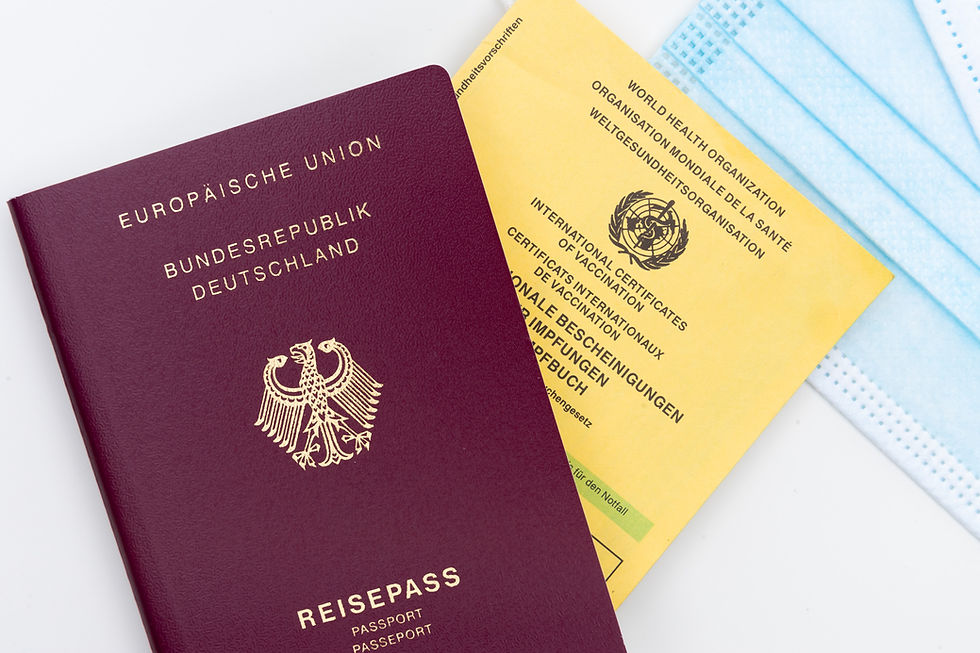
Unlocking Thailand: A Complete Guide to Visa and Immigration Rules
Navigating Thailand’s visa and immigration laws can be challenging, but understanding the essentials is crucial for a smooth experience. Here's an overview of visa types, requirements, and important rules to help you stay compliant and make your journey hassle-free.

Visa Categories and Purposes
Thailand offers several visa types tailored to different purposes. Here’s a breakdown of the main categories:-
1. Diplomatic Visa
Purpose: Diplomats and consular missions.
Duration: As necessary.
2. Official Visa
Purpose: Official government missions.
Duration: As necessary.
3. Non-Immigrant Visa
Purpose: For long-term stays such as business, work, education, or family.
Duration: Up to 1 year, depending on the category.

Key Non-Immigrant Visa Categories:
Category “B”: Business or employment.
Category “IB”: Investment under the Investment Promotion Act.
Category “O”: Family visits, retirement, or medical treatment.
Category “ED”: Education, seminars, or observation tours.
Category “R”: Religious or missionary work with approval.
4. Tourist Visa
Purpose: Leisure travel.
Duration: Up to 60 days (extendable by 30 days).
Visa-Free Entry: Citizens of 55 countries (and Hong Kong SAR) can stay for up to 30 days without a visa for tourism purposes.
5. Transit Visa
Purpose: Passing through Thailand, sports, or crew duties.
Duration: Up to 30 days.
6. Immigrant Visa & Non-Quota Immigrant Visa
Purpose: For permanent residence or former residents regaining status.
7. Courtesy Visa
Purpose: Foreign officials or dignitaries not eligible for Diplomatic or Official Visas.

Important Regulations
Work Authorization:
Tourist, Transit, and Visitor Transit visa holders cannot work in Thailand.
Non-Immigrant Visa holders (Categories B and O) are eligible for a work permit.
90-Day Reporting:
Foreigners staying over 90 days must report their address to immigration authorities every 90 days.
Re-Entry Permits:
Single re-entry: ฿1,000.
Multiple re-entry: ฿3,800.
Extension of Stay:
Application requires form TM7, a valid passport, and supporting documents.

Special Services for Investors and Expats
Thailand’s Board of Investment (BOI) provides a One-Stop Service Center for streamlined visa and work permit applications. This service can process documents within three hours for eligible applicants.
Location: Chamchuri Square Building, Bangkok.
Contact: +66 (0)2-209-1100
Penalties for Non-Compliance
Failing to report address changes: Fine of up to ฿5,000 + ฿200/day for delays.
Overstaying your visa: Subject to fines and potential blacklisting.
Key Benefits of a Non-Immigrant Visa
Eligibility to apply for permanent residency.
Option for multiple re-entries.
Access to work permit applications.

Permanent Residency:
Foreigners may apply for permanent residency if they meet specific criteria, such as significant business investments or property purchases.
By adhering to Thailand's immigration laws, you can ensure a seamless and legal stay in the Land of Smiles. Always double-check regulations and consult the Immigration Bureau for updated information.
Thailand’s visa and immigration system is designed to accommodate diverse needs, from tourism to long-term stays for work or investment. By adhering to the regulations, you can enjoy a seamless and rewarding experience in the Land of Smiles.
Credit: BOI

Comments